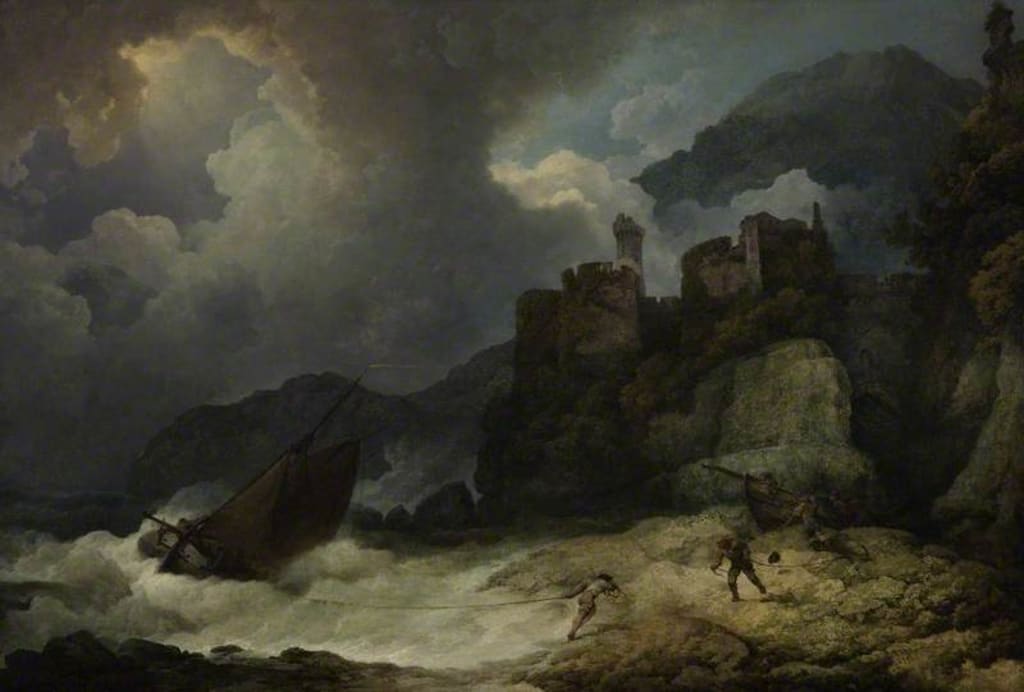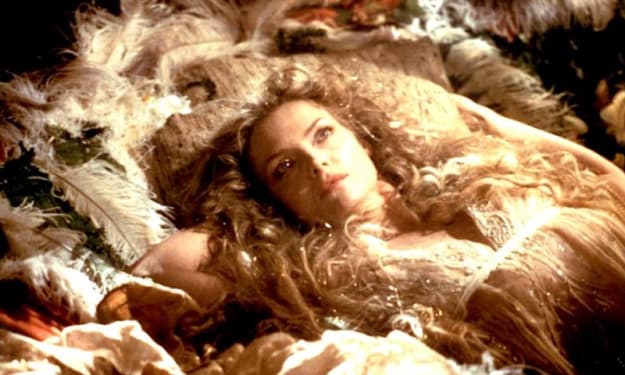Response to 'The Count of Monte Cristo' (Dumas)
'The Count of Monte Cristo' by Dumas & Buss (Penguin Books, 2003)

There is one main question Alexandre Dumas asks the reader in the book: Are you rich, or is your life rich? Dumas even uses Edmond Dantes to illustrate this. At the beginning of the book, Edmond is poor, but he has his father, Mercedes, and a promotion in a company in which he works for someone who's like a second father to him. When he's rich, he doesn't feel himself enriched.
Dumas also implies the question of whether or not the reader would like to be Edmond into the Count of Monte Cristo. I don't envy Edmond. He could have been a rich, generous, adventuring man even with Mercedes and his new position. He lost all that and emotionally fed off his passion for revenge for years after that. It's not what Edmond's father or Father Faria would have wanted. I don't doubt that 14 years of prison changes a man, but I don't agree that is was to break his spirit. Edmond gave in.
The history behind Les Catalans, a neighborhood of Marseille, reminds me of that of the black Irish. Those who settled into Les Catalans came from a part of Spain just as the black Irish came from the Iberian peninsula.
Caderousse, Danglars, and Fernand de Morcerf all plotted Edmond's arrest. De Villefort headed it up and carried it out. Danglars even used Fernand's own psychology against him, and thus, manipulated him into bringing in the letter that led to Edmond's arrest. Danglars himself wrote it with his left hand to disguise the handwriting.
De Villefort had Edmond arrested to cover up for Noirtier's, a known Bonapartist, being his father.
There were two sociopaths in the book: Danglars and the second Mrs. de Villefort (Edouard's mother, not Valentine's). They were both calculating and thought nothing of harming others to satisfy their ambitions. In Danglars' case, it was to retain his position on the Pharaon (ship). In Mrs. de Villefort's case, it was to ensure that her son, rather than her stepdaughter, would inherit Mr. de Villefort's wealth. In both cases, the ends justified the means for them.
The psychopath in the story was Benedetto. Rather than make use of other's company and orchestrate the fire that consumed his adoptive mother, Assunta, he shunned others and simply didn't car that she had died.
The name Mercedes means "mercies" in Spanish. From the time Edmond was separated from Mercedes, he was shown no mercy.
The last name Morrel is similar to the word "moral," showing that family to be in the right.
The name Noirtier is like "black," in this case morally black. It alludes to Noirtier's being seen as wrong.
Valentine's name is an obvious one. She's the classic girl in love, and named for Saint Valentine.
Haydee is like the term "heady," meaning sensuous. She came from Greece, rendering her exotic. She was also full of life. Those were two traits Mercedes had when she was going to marry Edmond.
De Villefort is half-countryman and half-fortress, "ville" in French meaning "countryside," and "fort" having the same meaning in English. He is patriotic in being a royalist, and stalwart like the personification of a fortress.
The last name of Dantes alludes to Edmond's being persecuted like Dante Alighieri was for his writings.
As a further illustration of Mr. de Villefort's self-interest, even when he warned his father of being found out as de Quesnel's killer, he was going so partly because it would reflect badly upon him as his son. At best, he'd lose his position as Deputy Crown Prosecutor. At worst, he'd be arrested for being associated with a Bonapartist.
Dumas says a fair amount through certain characters. In referring to the mistrust kings have of the ones around them, Dumas manages to interject some commentary: "They are men who wear crowns, nothing more." (129) He is saying that kings were never divine as once thought. As ephemeral as regimes are, it's easy for the adoring public to see that their kings were never divinely ordained to rule. To further that point, Dumas writes, "but nowadays kings are well within reach." (129) He is contrasting kings with the divine, saying they are within mortal reach.
Dumas gives himself away as a Renaissance thinker through something Father Faria says: "It is not the laws of society that condemn murder, but the laws of nature." (154) A belief in the laws of nature and humans rather than societal law was a very popular idea shared by Renaissance philosophers.
Dumas makes more commentary through Father Faria with another point he makes, "the tigers and crocodiles with two legs are more dangerous than the rest." (166) A tiger or crocodile coming straight at someone gives them time to react, whereas humans are crafty and conniving. Even in a literal sense, humans are the only ones who kill the other two for sport. Humans are also the ones who invented murder, as opposed to killing for food, to protect territory, or to protect young. Humans can even give a fate worse than death. They can leave someone in such a broken state that death would be a release from it.
Edmond dons a few disguises. It's at first amusing to see how he fools even his former friends into thinking he's Lord Wilmore, Father Busoni, Sinbad the Sailor, or, more frequently, the Count of Monte Cristo. During all this time, he's so busy with his plan for revenge that he forgets to get back in touch with his friends as his real self, Edmond Dantes. The persona of Father Busoni is in tribute to Father Faria.
I even felt like arguing with Edmond when he had Danglars' horses purchased for him to parade in front of their former owner as his own. It was clearly pettiness and showing off on his part. I understand that it was based on Danglars' having been the chief orchestrator of Edmond's arrest, but Edmond already had an unlimited credit drawn by Danglars. Edmond was quite shameless.
It spoke to me when Mr. Morrel was able to identify Edmond as his family's benefactor, even on his deathbed. Edmond had thought he'd been so clever, hiding behind those disguises and assumed names, but he hadn't been able to fool one of his oldest friends.
It made me happy when Edmond found out later that Mercedes had been able to recognize him too. She'd just kept it to herself to protect him.
Edmond was even darkly helpful to Valentine. He taught her to rescue herself by seeming dead, then escaping as he'd had to do to get out of the prison. He mentored her by showing her her own strength in getting through that ordeal.
This was when Mrs. de Villefort had poisoned Valentine and Edmond administered the antidote, then gave her something to make her seem dead. Mrs. de Villefort still had to think she was dead for Valentine to escape.
Edmond had drawn on his own past experience to help Valentine. He'd had to place himself in Father Faria's body wrap when Faria died. After being shot by a cannon into the sea, he had to cut himself out of the body wrap, then cut himself free of the ropes tying him to the cannonball dragging him to the depths.
Edmond's escape reminded me of Saint Augustine, who hid himself in a pile of corpses that had died of the plague.
Edmond first had to talk with Mercedes to resolve their differences about the past. Then, he had to realize he'd gone too far once he saw Edouard's dead body due to his manipulations. After that, he had to revisit his prison cell and forgive himself for being a victim. Those combined to help Edmond make peace with his past. Once he did so, he could open himself up to being happy with Haydee.
Edmond had good in him; he just didn't want to admit it to himself until he'd reconciled with his past. He'd viewed his previous kindness and openness as stupidity, weakness and naivety. His imprisonment thought him it was wrong to hope. That he'd thought he was Providence on earth showed how far his ideas had taken him. Once he'd let go of his revenge, he left room within himself for being happy again.
About the Creator
Alexandra F
I write to give myself an adventure & if it's fun perhaps you will enjoy it too.
This is the link to my journalistic blog: https://www.tumblr.com/blog/franklynews
I only make money if you contribute, so please click the bottom button. Thanks!






Comments
There are no comments for this story
Be the first to respond and start the conversation.